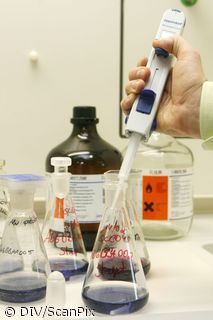Chancellor attacks Oxford admissions.
Published:
26 May 2000 y., Friday
The Chancellor, Gordon Brown, has said it is "an absolute scandal" that a pupil from a state comprehensive was refused a place at an Oxford College - only to win a scholarship to Harvard.
His remarks about the case of Laura Spence from Monkseaton Community High School in Whitley Bay, Tyne and Wear, came during a speech to the Trades Union Congress.
Mr Brown said she had been denied a place at Oxford due to "an old establishment interview system".
Oxford University has said it finds his remarks "deeply disappointing". The Conservatives accused Mr Brown of "ignorant prejudice". Mr Brown told a TUC reception celebrating 30 years of equal pay legislation that he and the Education Secretary, David Blunkett, "both take the view that it is an absolute scandal" that Laura, with 10 A* GCSE exam passes, "finds an old establishment interview system denying her access to the first university of her choice, though she was worthy of a scholarship to Harvard".
Laura, who intends to study medicine at university, is expected to do equally well in her A-level exams.
After being turned down by Magdalen, she became one of only 10 British students to win Harvard scholarships - worth, in her case, Ј65,000.
The revelation raised questions over Oxford's policy of trying to recruit more state school pupils.
The Downing Street spokesman said the Chancellor was making the point that background should not be as important as talent.
The government wanted excellence to be recognised in all parts of the community and wanted the best universities to open their doors to all parts of the community.
He said it was not for the government to determine admissions procedures at Oxford. But it was "clearly regrettable" if talented people from this country were unable to develop their talents here.
Copying, publishing, announcing any information from the News.lt portal without written permission of News.lt editorial office is prohibited.
The most popular articles

The European Commission announced today the award of three of the six contracts for the procurement of Galileo’s initial operational capability.
more »
 As part of the 2009 European Year of Creativity and Innovation, a diverse group of prominent scientists, artists, scholars and business executives - European ambassadors of the year – has come up with an ambitious manifesto.
more »
As part of the 2009 European Year of Creativity and Innovation, a diverse group of prominent scientists, artists, scholars and business executives - European ambassadors of the year – has come up with an ambitious manifesto.
more »
 A hundred teams have arrived to Washington, DC from all corners of the globe, each with an idea to help save the planet.
more »
A hundred teams have arrived to Washington, DC from all corners of the globe, each with an idea to help save the planet.
more »
 NASA is calling its new rocket Ares 1-X the next chapter in space exploration.
more »
NASA is calling its new rocket Ares 1-X the next chapter in space exploration.
more »
 Common rules proposed for cross-border inheritances.
more »
Common rules proposed for cross-border inheritances.
more »
 Solar energy and carbon capture and storage earmarked for lion's share of extra technology funding.
more »
Solar energy and carbon capture and storage earmarked for lion's share of extra technology funding.
more »
 George Smith and his colleague Willard Boyle revolutionized digital imaging technology, and on Tuesday the two men each got an early morning call from Sweden advising they'd been awarded one half of the 2009 Nobel Prize for Physics.
more »
George Smith and his colleague Willard Boyle revolutionized digital imaging technology, and on Tuesday the two men each got an early morning call from Sweden advising they'd been awarded one half of the 2009 Nobel Prize for Physics.
more »
 European Commission called public authorities, business, and researchers to join efforts in order to develop by 2020 the necessary technologies to address climate change, secure EU energy supply and ensure the competitiveness of our economies.
more »
European Commission called public authorities, business, and researchers to join efforts in order to develop by 2020 the necessary technologies to address climate change, secure EU energy supply and ensure the competitiveness of our economies.
more »
 This year's announcement from Stockholm, Sweden -- awarded the Nobel prize for medicine to a trio of Americans for discovering telomerase -- an enzyme which helps prevent the fraying of chromosomes that underlies aging and cancer.
more »
This year's announcement from Stockholm, Sweden -- awarded the Nobel prize for medicine to a trio of Americans for discovering telomerase -- an enzyme which helps prevent the fraying of chromosomes that underlies aging and cancer.
more »
 Since its launch in 1987, the Erasmus programme has helped 2 million students carry out a part of their studies or a work placement in another European country.
more »
Since its launch in 1987, the Erasmus programme has helped 2 million students carry out a part of their studies or a work placement in another European country.
more »
 Three separate missions examining the moon have found clear evidence of water there, apparently concentrated at the poles and possibly formed by the solar wind.
more »
Three separate missions examining the moon have found clear evidence of water there, apparently concentrated at the poles and possibly formed by the solar wind.
more »